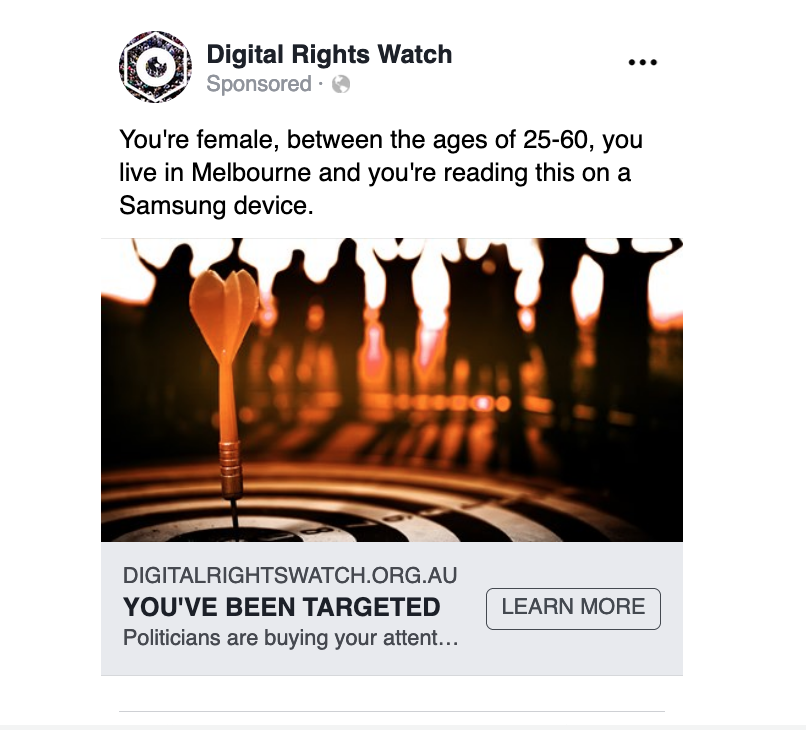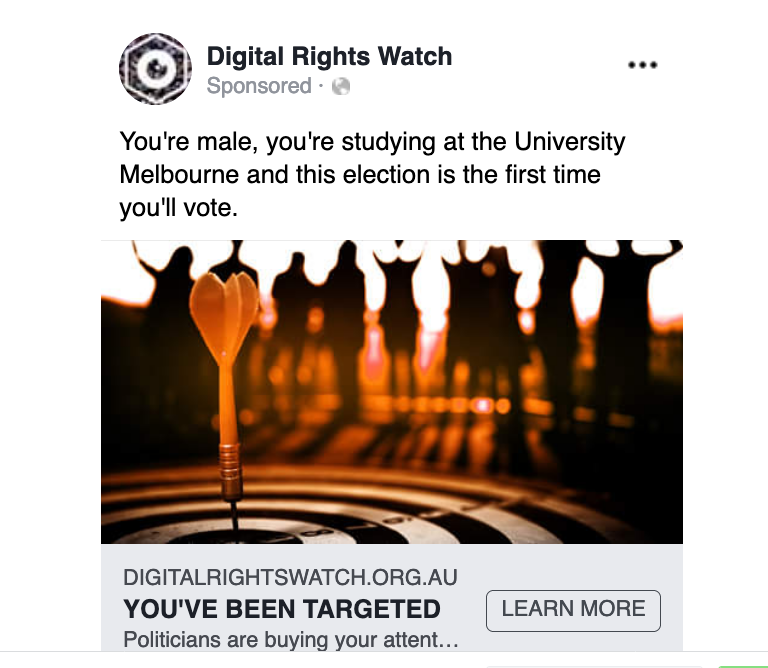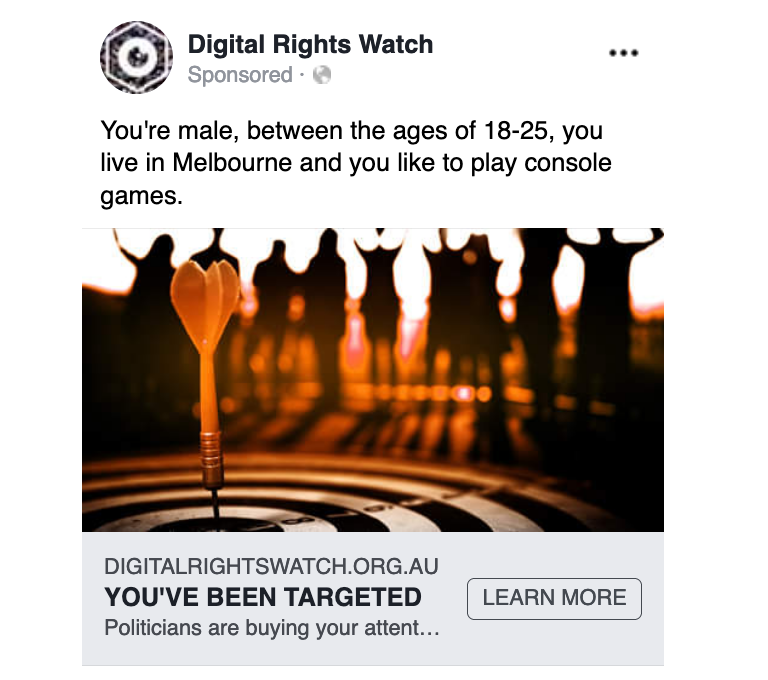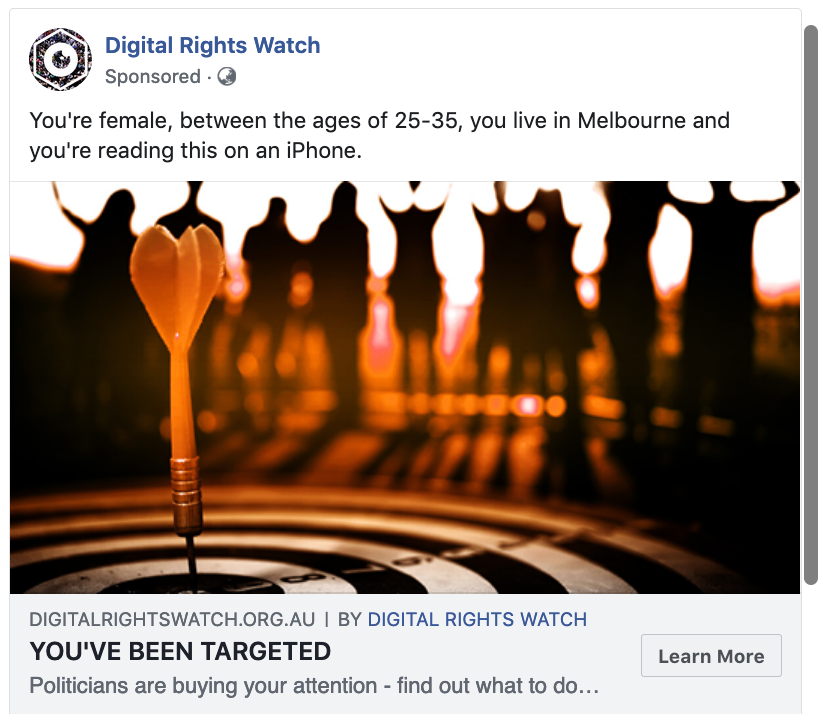This election, you may have noticed that you’ve been inundated with targeted adverts from political parties, interest groups and individual candidates, who are all using Facebook microtargeting in their strategies to influence voters.
For the past week, we’ve been running our own advertising campaign, to draw attention to this practice, to educate people that it is happening, and quite frankly, call out how creepy the practice is.
We used Facebook’s own targeting algorithms to identify certain people, and then created ads that point out exactly what we know about them.
Facebook knows a lot about you based on the information you have added yourself, the pages you have liked and how you interact with them. Using cookies, advertisers can also target Facebook advertisements at you based on your browsing habits.
The scary thing is that this wasn’t hard. We threw a few hundred dollars behind 10-15 variations of these ads, and ended up reaching 20,000 people. All of whom had specific characteristics that we relayed back to them through these ads.
Sure, but that’s just advertising, right? Well here’s the kicker – political parties, their candidates, staff, volunteers and any consultants they use are completely exempt from the Australian Privacy Act.
That means they aren’t bound to any of the same regulations and rules that companies, non-profits or everyday citizens are. They don’t have to worry about invading your privacy, or protecting your data, or dealing with the ethical and legal dilemma of cross-referencing and data matching.
They can acquire or purchase lists of consumer data, demographics, insurance details – combine these with any recorded interaction you’ve ever had with an MPs office, or a political party or any of their associated entities – upload these to Facebook and serve you ads that are incredibly accurate.
In practice this means information you have shared on one platform for a completely different purpose can be used to target you with advertisements on Facebook without you realising. And it’s all happening behind a cloak – you may see a completely different ad, for the same political party, that your neighbour sees.
So what can you do to protect your privacy?
First step, you’re here. You’re aware. That’s a great start.
Second, make sure you know how different parties stand when it comes to online privacy and changing the Privacy Act exemption.
Third, find out more about these practices. The ABC have done some great investigative journalism on the tracking and profiling underway by political parties, as have Crikey.
Finally, make some noise. Write to your MP, Senator, or all of the political parties, and tell them you’re not happy with these practices. The more of us who raise the issue, the more likely we will see change.
You can also check out Digital Rights Watch Tools and Guides for more information and tips on how to manage your privacy online.





